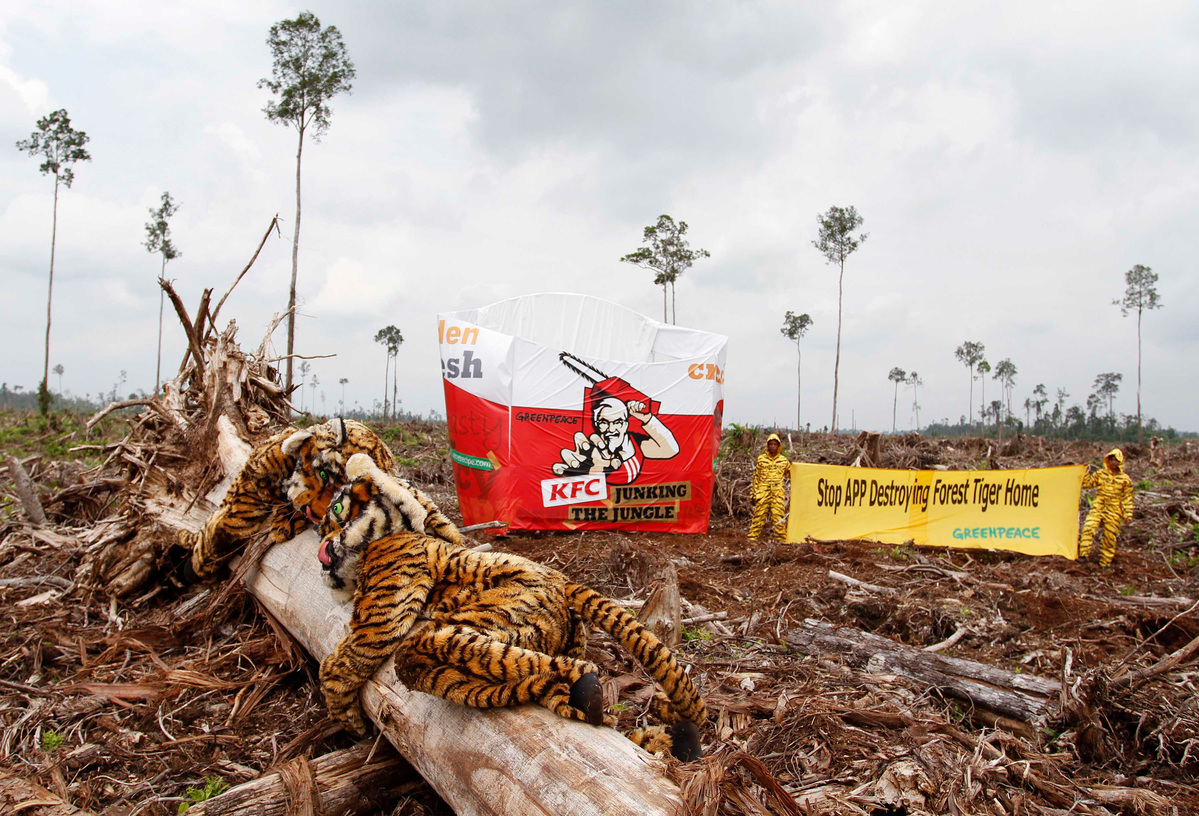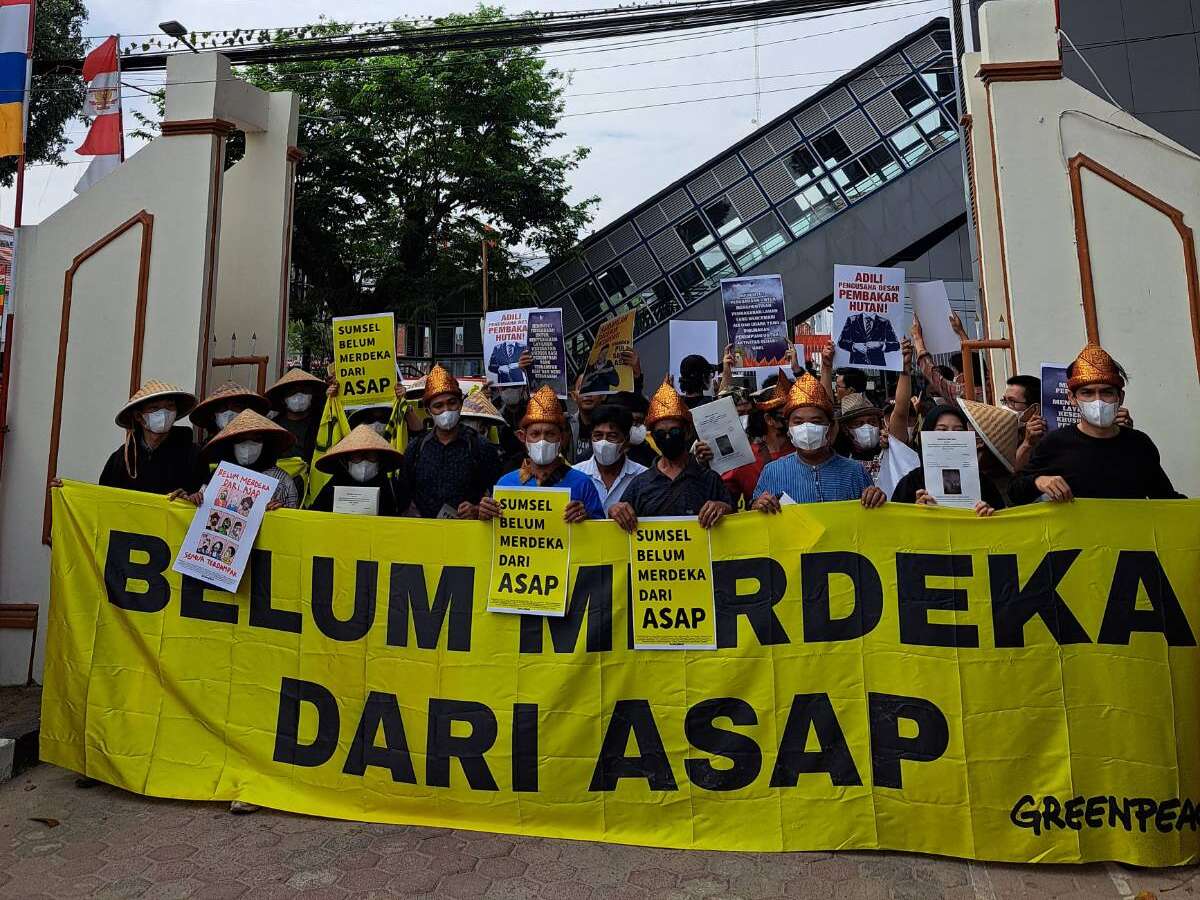All eyes turn to Maybank and RHB
Kuala Lumpur/ Jakarta- Environmental groups have welcomed an announcement from Malaysia’s CIMB that it plans to end funding for new coal mines and coal-fired power stations as of 2021, and phase out its exposure to coal by 2040.
CIMB’s policy, detailed in its coal sector guide, is a first in Southeast Asia and heaps pressure on other banks in the region to follow suit.
“CIMB’s new policy is a smart move, both in terms of acting on climate change and managing the bank’s exposure to the failing coal industry,” said Didit Wicaksono, Climate and Energy Campaigner from Greenpeace Indonesia. “We look forward to seeing other banks in the region, particularly Maybank and RHB, to making the same commitments.”
“However, we urge the bank to take additional steps to cut ties with the highly controversial Jawa 9 and 10 proposed in Indonesia.”
Jawa 9 and 10, which CIMB and Maybank are involved in financing, is now the subject of a lawsuit for failing to comply with Indonesian laws regarding public consultation, the environmental impact assessment and emission/pollution controls. If successful, the lawsuit could lead to the cancellation of the environmental permit.
CIMB’s announcement of its Coal Sector Guide, as part of what it claims as its sustainability journey, is a significant step in the right direction, added Greenpeace Malaysia Campaigner Heng Kiah Chun.
“Malaysian banks like CIMB have an important and strategic role to play in addressing the climate emergency in Southeast Asia, given their substantial investments in financing energy projects in the region.
“We hope that with this announcement, other banks in the region that are still funding coal mines and coal-fired power plants projects, will follow a similar path to that of CIMB’s and be real leaders of sustainability.”
DETAILS ABOUT POLICY
The announcement followed a campaign by a coalition of environmental groups calling on
CIMB – but also Malaysia’s banking sector as a whole – to live up to sustainability promises and end finance to new coal projects.
Effective in 2021, CIMB will no longer finance new or expansions of thermal coal mines and coal-fired power plants, except where there is an existing commitment. CIMB has committed to developing a comprehensive plan to reduce its coal exposure to zero by 2040. While the details of how the phase out will occur remain to be seen, the bank has indicated that it expects that its power generation clients will provide a diversification strategy to reduce the share of coal in their energy mix.
“We welcome this important step taken by CIMB and we urge CIMB to review any ‘existing commitments’ with its clients, including Jawa 9 and 10, to determine if these investments are Paris-aligned or face the risk of becoming stranded assets,” said Susan Tagle, Coordinator of the Asian Energy Network.
On CIMB’s coal phase-out plan, Ms Tagle stated: “2040 is a long time from now. We expect CIMB’s plan for phasing out its coal exposure to include metrics and targets as recommended by the Task Force on Climate-related Financial Disclosures (TCFD) so that investors and other stakeholders can see that the bank is making measurable progress.”
See: CIMB is funding a hotter earth
According to data released earlier this year, CIMB, Maybank and RHB provided US$4.9 billion in finance to the coal sector between 2010 and 2019. More than half of this was provided by CIMB, which lent over US$2.68bn to coal power over the period.
| CIMB, Maybank and RHB’s lending to coal power from 2010 to 2019 | ||||
| Bank | Sector | Bond arrangement (US$m) | Lending (US$m) | Total (US$m) |
| CIMB | Coal | $2,445 | $240 | $2,685 |
| Maybank | Coal | $1,291 | $507 | $1,797 |
| RHB | Coal | $180 | $256 | $435 |
| Total | $4,917 |
Market Forces, Feb 2020
Up until CIMB’s announcement, Malaysian banks have been falling behind the global trend with over 110 financial institutions having already implemented policies to restrict or end coal finance. Last year, all three large Singaporean banks, UOB, DBS and OCBC, as well as Cathay Financial Holdings of Taiwan, announced new policies to end coal power project finance. In October, Korean banking giant KB Financial Group became the latest institution to exit coal power.
Bank Negara Malaysia, Malaysia’s Central Bank, has also repeatedly highlighted the critical importance of financial institutions managing climate risk.
“CIMB has taken an opportunity to be a clean energy leader in Southeast Asia,” said Yuyun Indradi, executive director of Indonesia-based organization, Trend Asia. “In doing so it has taken steps to significantly reduce its exposure to stranded assets in the failing coal sector, as well as providing a critical boost to the millions of people affected by the climate crisis and by the scourge of air pollution. In order to avoid such risk, withdrawal from any investment in Jawa 9 & 10 coal thermal power plant project will be evidence of CIMB’s seriousness on its new policy”
“CIMB’s move highlights the total absence of coherent climate policy from the rest of the banking sector in Malaysia, as well as weak policies in neighbouring Singapore from the likes of DBS Bank. They can and must do better,” said Merah Johansyah, national coordinator of Jatam, Indonesia Mining Advocacy Network.
Organisations supporting the campaign include Asian Peoples’ Movement on Debt and Development (APMDD), Greenpeace Southeast Asia, Indonesian Forum for the Environment (Walhi), Indonesian Mining Advocacy Network (Jatam), and Trend Asia .
Media Contact:
Heng Kiah Chun, Greenpeace Malaysia campaigner
E: [email protected]; M: +60163198278

End the air pollution crisis once and for all, because no-one should have to worry about what they breathe.
Get Involved


